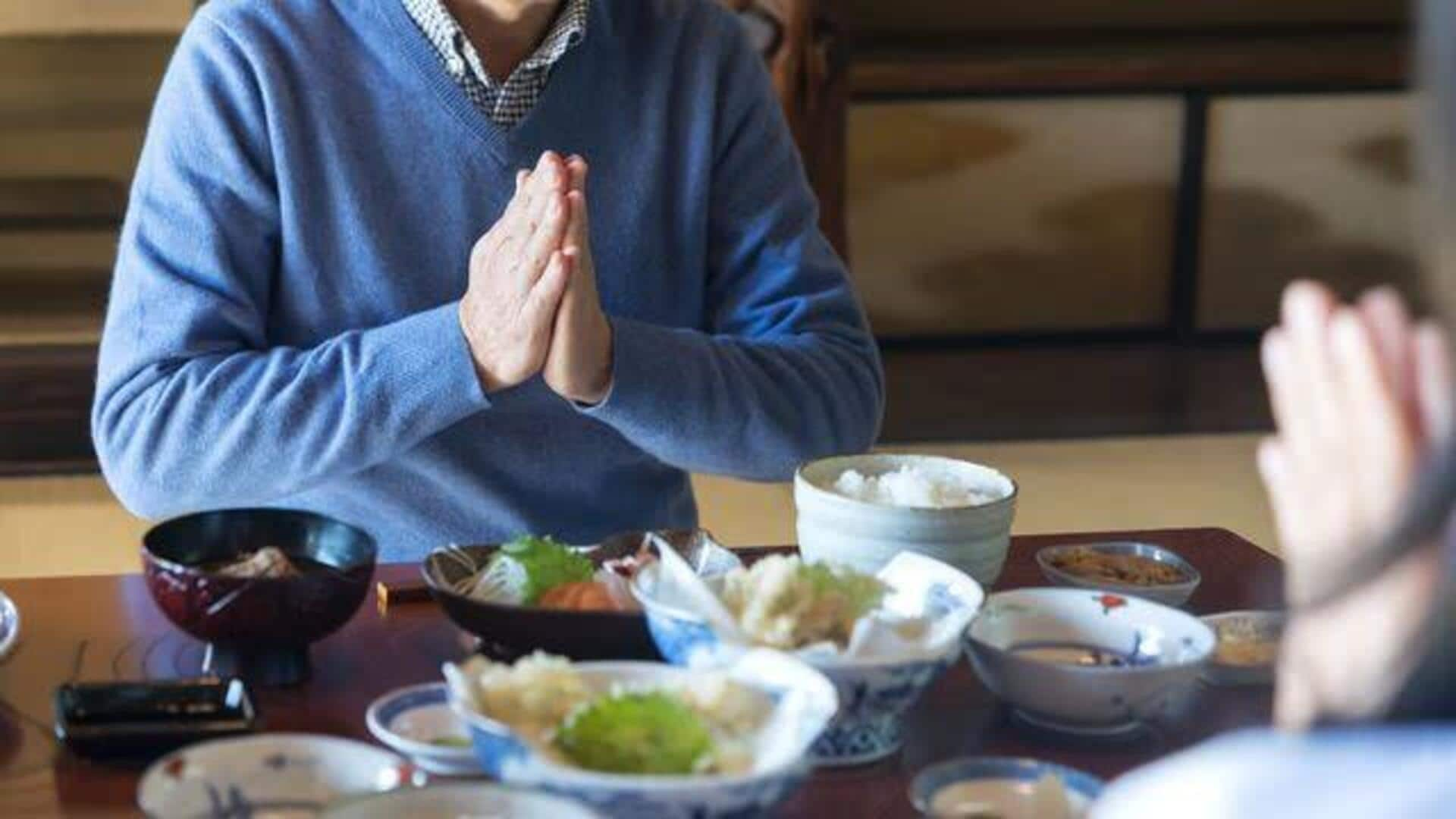
Unique dining etiquette rules from Japan
What's the story
Japanese dining etiquette is a beautiful combination of tradition and respect. It showcases the rich culture of the country. Knowing these rules can improve your dining experience and demonstrate your respect for Japanese customs. From the way you hold chopsticks to the right way to express your gratitude, everything about dining in Japan is meaningful. Here are five unique Japanese dining etiquette rules that offer an insight into this complex cultural practice.
Chopsticks
Chopstick etiquette
In Japan, chopstick etiquette is everything. Never stick chopsticks upright in a bowl of rice, as it looks like a funeral ritual. Don't pass food from one pair of chopsticks to another, as that mimics a funeral custom involving bones. When not in use, place chopsticks on the holder provided, or lay them parallel across your plate or bowl. These practices show respect for both the meal and those around you.
Noodle slurping
Slurping noodles
In Japan, slurping down noodles is not just acceptable but encouraged. It means you're enjoying and appreciating the flavors of the meal. The sound adds to taste by aerating the noodles and cooling them down as you eat. While the practice may seem odd elsewhere, it's polite in Japanese culture, particularly while eating ramen or soba.
Drink pouring
Pouring drinks for others
In Japan, serving drinks for others before yourself is a sign of politeness and attention to your companions' needs. So, whenever someone serves a drink for you, lift your glass a little off the table as a sign of gratitude. This reciprocal act builds camaraderie and mutual respect among diners.
Meal gratitude
Saying "itadakimasu" before eating
Before you start a meal, it is customary to say itadakimasu, which translates to "I humbly receive." The phrase expresses gratitude towards everyone who is involved in preparing the meal, from farmers to chefs, and acknowledges their efforts. It sets a respectful tone for the dining experience.
Post-meal thanks
Expressing thanks with "gochisousama"
After you're done eating, saying "gochisousama" is a way of thanking both, the food and those who made it. Meaning "Thank you for the feast," this phrase is mindful of the hospitality you've received while eating. Saying this word signifies respect for your hosts or restaurant staff and gives the meal a happy ending.